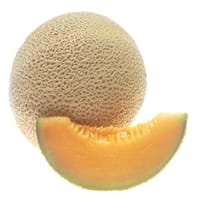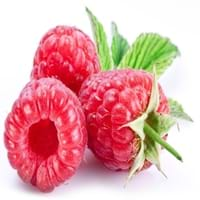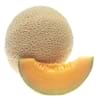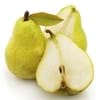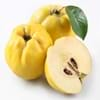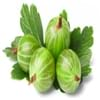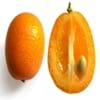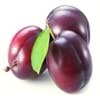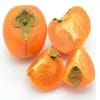Health Benefits
Cancer prevention, Heart care, Improves eye vision, Prevents diabetes, Reduces stress
Cancer prevention, Heart care, Prevents macular degeneration, Reduces blood circulation problems
General Benefits
Boosts immune system, Cures cough, Cures fever, Digestive aid, Eye care, Helps in weight loss
Anti-inflammatory properties, Controls blood sugar levels, Digestive aid, Eye care, Helps in weight loss
Skin Benefits
Anti-aging benefits, Hydrates skin, Skin rejuvenation, Treatment of skin diseases
Anti-aging benefits, Brightens and lightens complexion
Hair Benefits
Good conditioner, Prevents hair loss, Protects hair
Acts as moisturizer, Regulates hair growth, Shiny hair
Allergy Symptoms
Abdominal pains, Anaphylaxis, Breathing difficulty, Diarrhea, Dizziness, Hives, Itching of mouth, Nasal congestion, Nausea, Vomiting
Breathing difficulty, Eczema, Hives, Itching, Nasal congestion, Runny nose, Sneezing, Watery eyes, Wheezing
Side Effects
Allergic reaction, Bloating, Indigestion
Allergic reaction
Best Time to Eat
As a snack in the late afternoon, Don't consume at night and before bed, Eat the fresh ones, avoid mixing with any other foods, don't eat after meal., Morning time (before lunch)
Best if taken as a breakfast (or empty stomach), As a snack in the late afternoon, Don't eat after meal, Morning time (before lunch)
Vitamin B5 (Pantothenic Acid)
Vitamin C (Ascorbic Acid)
Vitamin K (Phyllochinone)
Phytosterol
Not Available
Calories in Fresh Fruit with Peel
Not Available
Calories in Fresh Fruit without Peel
Not Available
Calories in Canned Form
Not Available
Varieties
Hales Best Jumbo, Sweet 'N Early Hybrid, Hearts of Gold, Ambrosia, Athena, Honey Bun Hybrid, Fastbreak and Superstar
Amity, August Red, Boyne, Canby, Caroline, Comet, Dinkum, Dorman Red, Latham, Meeker, Black Hawk, Hayda, Lauren, Meeker and Latham
Color
Orange
Black, Purple, Red, Yellow
Inside Color
Creamy Orange
Pink
Taste
Juicy, Musky, Sweet
Sweet
Origin
Africa, India
Europe, North Asia
Soil Type
Sandy
Sandy loam
Climatic Conditions
Dry, Hot
Cold
Facts about
- Cantaloupe is known as rock-melon in some parts of the world.
- Christopher columbus first introduced cantaloupes to north america in 1494.
- The name 'Cantaloupe' as it is cultivated in papal gardens of cantaloupes, Italy.
- There are more than 200 varieties of raspberries.
- In USA, 90% of the raspberries are grown in Washington, California and Oregon.
- They do not ripe after they are picked.
- A raspberry contain 100 to 120 seeds.
Top Producer
China
Russia
Other Countries
Iran, Romania, Turkey, United States of America
Azerbaijan, Canada, Mexico, Poland, Serbia, Spain, Ukraine, United Kingdom, United States of America
Top Importer
United States of America
United States of America
Top Exporter
Spain
Poland
Botanical Name
Cucumis melo var. cantalupensis
Rubus Idaeus
Synonym
Cucumis melo var. reticulatus
Not Available
Subkingdom
Tracheobionta
Tracheobionta
Division
Magnoliophyta
Magnoliophyta
Class
Magnoliopsida
Magnoliopsida
Subclass
Dillenhidae
Rosidae
Order
Cucurbitales
Rosales
Family
Cucurbitaceae
Rosaceae
Species
C. melo
R. idaeus
Compare Cantaloupe and Raspberry
It is important compare Cantaloupe and Raspberry as both the fruits have a different nutritional value. Their comparison can be done on the basis of their vitamin and mineral content, calories, benefits as well as characteristics, making it easier for us to choose the best fruit for our diet. Their general health benefits are as follows:
Cantaloupe Benefits: boosts immune system, cures cough, cures fever, digestive aid, eye care and helps in weight loss.
Raspberry Benefits: anti-inflammatory properties, controls blood sugar levels, digestive aid, eye care and helps in weight loss.
Fruits are also used as a remedy for various hair problems. The hair benefits of Cantaloupe are: good conditioner, prevents hair loss and protects hair and hair benefits of Raspberry are: acts as moisturizer, regulates hair growth and shiny hair. Some fruits are known to cause allergic reactions. The allergy symptoms of first fruit are: abdominal pains, anaphylaxis, breathing difficulty, diarrhea, dizziness, hives, itching of mouth, nasal congestion, nausea and vomiting and the symptoms of second fruit are: breathing difficulty, eczema, hives, itching, nasal congestion, runny nose, sneezing, watery eyes and wheezing. Get sorted Cantaloupe vs Raspberry comparison with the help of fruit comparison tool by fruitvs.com.
